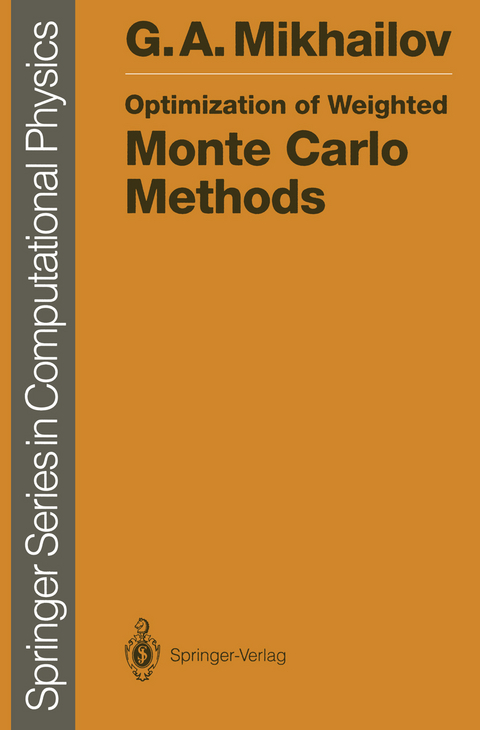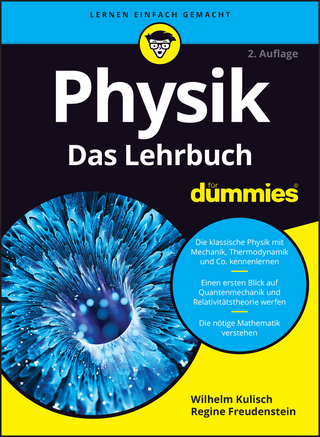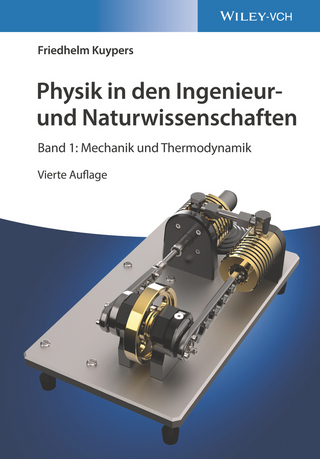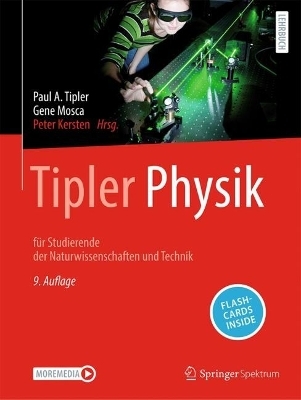
Optimization of Weighted Monte Carlo Methods
Springer Berlin (Verlag)
978-3-642-75983-3 (ISBN)
Weighted Monte Carlo algorithms are extremely useful when direct simulation techniques are inapplicable or ineffective. The methods presented in this book help to minimize computer time and memory required in constructing statistical models for systems described by integral equations.
1. Mathematical Models of Weighted Monte Carlo Methods.- 1.1 Simple Facts from Functional Analysis.- 1.2 Simple Facts from Convergence Theory for Random Functions.- 1.3 Integral Equations of the Transfer Theory and Monte Carlo Methods.- 1.4 Other Integral Equations Solved by Monte Carlo Methods.- 1.5 Monte Carlo Methods for Calculating Integrals.- 1.6 Unbiasedness and Variance of Monte Carlo Methods.- 1.7 Weighted Estimates for Bilinear Functionals.- 1.8 Calculation of the Derivatives of the Linear Functionals and the Weak Convergence of the Functional Estimates.- 2. Using Information About the Solution.- 2.1 Importance Sampling Technique.- 2.2 Weighted Path Estimates in the Transfer Theory.- 2.3 Estimation of the Variance D?x for Importance Sampling Technique.- 2.4 Using the Asymptotic Solution to the One-Velocity Transfer Equation.- 3. Nonlinear Theory of Optimization for Solving Integral Equations.- 3.1 Formulation of the Problem.- 3.2 Investigation of the Master Equation.- 3.3 A Model Problem.- 3.4 Asymptotic Optimization of the Radiative Transfer.- 3.5 Asymptotic Optimization in a Special Class of Densities.- 3.6 Minimization of the Variance of the Collision Estimates.- 4. Minimax Weighted Estimates.- 4.1 Statement of the Problem. The Basic Lemma.- 4.2 The Minimax Estimates for the Integrals.- 4.3 Optimization of Estimates for the Integral Equations.- 4.4 Minimax Choice of the First Step in the Markov Chain.- 5. Vector Monte Carlo Algorithms.- 5.1 Variance Vector Algorithms.- 5.2 Uniform Optimization of Weighted Monte Carlo Estimates in the Transfer Theory.- 5.3 Vector Algorithm Related to a Stratified Sampling with Respect to One Variable.- 5.4 Accuracy of the Monte Carlo Method for Solving the Vector Transfer Equation.- 5.5 Vector Estimates for Triangular MatrixKernel.- 5.6 Vector Estimates for the Resolvent Iterations.- 5.7 Vector Representations of Bilinear Estimates.- 5.8 Vector Algorithm for Evaluating the Effective Fission Coefficient.- 5.9 Variance Reduction for the Vector Estimates.- 5.10 Asymptotic Investigation of a Monte Carlo Method Combined with the Method of Finite Sums.- 6. Randomization of Weighted Algorithms.- 6.1 Randomized Estimation for Statistical Moments of the Solution.- 6.2 Lower Bound of the Variance. Averaging Exponential Kernels.- 6.3 Special Models of Non-Gaussian Random Fields Related to Stationary Point Fluxes.- 6.4 Simulation of Homogeneous Gaussian Fields by Randomization of the Spectral Representation.- 6.5 Stochastic Problems of Radiative Transfer Theory.- 6.6 A Stochastic Elasticity Problem.- 6.7 Simulation of Admixture Diffusion in Stochastic Velocity Fields.- 7. The Method of Multiple Splitting.- 7.1 Optimization of the Splitting Method.- 7.2 Optimization of the Splitting Technique for Calculating the Transmission Probability.- 7.3 Numerical Calculation of the Optimal Splitting Parameters.- 7.4 Uniform Optimization of the Splitting Method.- 7.5 Randomized Splitting Method.- 7.6 Splitting of the Collision Estimate.- 8. Transformation of Equations and Weighted Estimates.- 8.1 The Averaging Transformation.- 8.2 Translations.- 8.3 Some Relations Between the Variances.- 8.4 Notions on the Functional Convergence of the Estimates.- 9. Monte Carlo Methods and Perturbation Theory.- 9.1 Vector Weighted Monte Carlo Methods.- 9.2 Differentiation of Integral Equations with Respect to a Parameter.- 9.3 Calculation of Perturbations.- 9.4 Calculation of Derivatives.- 9.5 Calculation of Perturbations in the Transfer Theory.- 9.6 Calculation of Derivatives of Solutions to Boundary Value Problems by the MonteCarlo Method.- Appendix. Models of Random Variables.- A.1 Simulation of Random Variables.- A.2 Simulation of Random Vectors.- References.
| Erscheint lt. Verlag | 15.11.2011 |
|---|---|
| Reihe/Serie | Scientific Computation |
| Übersetzer | Karl K. Sabelfeld |
| Zusatzinfo | XI, 225 p. |
| Verlagsort | Berlin |
| Sprache | englisch |
| Maße | 155 x 235 mm |
| Gewicht | 375 g |
| Themenwelt | Naturwissenschaften ► Physik / Astronomie ► Allgemeines / Lexika |
| Naturwissenschaften ► Physik / Astronomie ► Theoretische Physik | |
| Schlagworte | Complexity • Monte Carlo Methoden • Monte Carlo methods • Schätzung (Statistik) • Stoßschätzungen • vector algorithms • Vektoralgebra • weighted estimates |
| ISBN-10 | 3-642-75983-1 / 3642759831 |
| ISBN-13 | 978-3-642-75983-3 / 9783642759833 |
| Zustand | Neuware |
| Haben Sie eine Frage zum Produkt? |
aus dem Bereich


